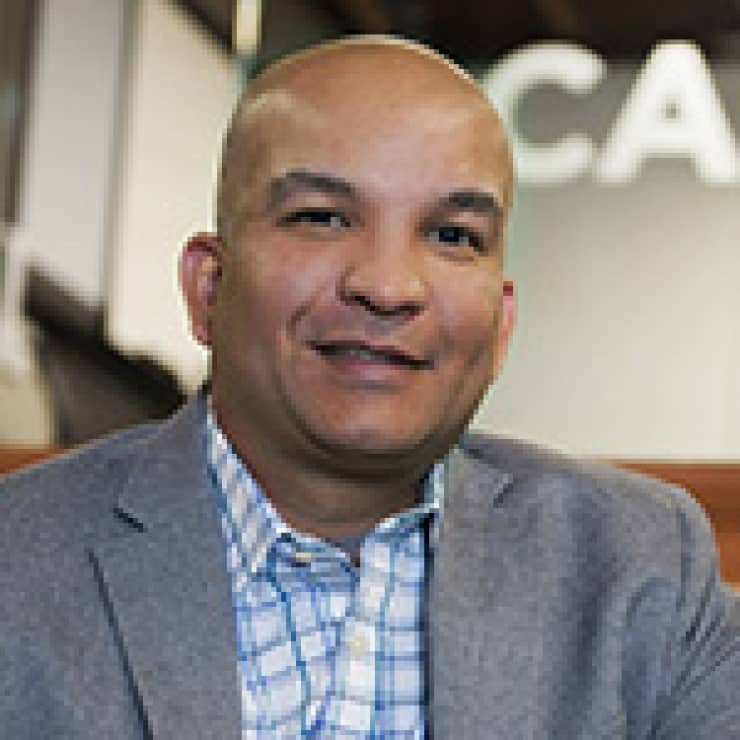What Narrative Will Emerge from the National Conventions?

Tenoch Flores
Adjunct Professor, Political Communications
Master of Public Affairs and Practical Politics
During my time as Communications Director for the California Democratic Party, I was responsible for developing and implementing the message and narrative for a total of five annual state party conventions, as well as for the California delegation to the Democratic National Convention (DNC) in 2012. This month, both of the nation’s main political parties are preparing to hold their quadrennial national conventions in Cleveland (RNC) and Philadelphia (DNC). Here’s what I can tell you about working to set and advance a narrative during the largest political event of the season: it’s not easy.
Even in the age of social media, custom news feeds and unprecedented personal access, the national party conventions represent the single greatest opportunity both political parties have to project a narrative about their party and their candidates to the electorate. Almost every political observer will be watching and a sizable portion of voters will take in at least the headlines and the main themes that emerge.
I teach political communications during spring semester for the Master of Public Affairs program at the University of San Francisco. One of the strategic communication concepts that students in my class learn is narrative and the role of narrative in political campaigns. Specifically, we discuss how to spot a narrative as it develops, how to track it, and eventually, how to create and advance a narrative on behalf of a candidate, an organization or coalition.
Creating and projecting an effective narrative in the environment these conventions take place in presents considerable challenges to even the most experienced communications professionals. It’s difficult to do even when all of the elements are in place. It’s almost impossible to do when entire narrative elements are missing or otherwise unavailable to you.
One of the elements necessary to create a strong narrative during convention is: exciting speakers. For example, a young State Senator named Barack Obama was one of the main speakers at the 2004 DNC in Boston. The speech he delivered at the Fleet Center launched his national political career which now culminates shortly after this year’s campaign ends.
Speakers matter. They give media in attendance something to focus on, to write and report about.
This was just one of the reasons California Democratic Party senior staff worked overtime to land exciting speakers with national followings for state convention. It’s not by accident that Senator Elizabeth Warren, Secretary Julian Castro and Senator Bernie Sanders – all rumored Vice Presidential contenders – spoke at recent California Democratic Party conventions.
The staff at this year’s Republican National Committee will have to adjust to a far different reality just as national media descend on Cleveland to cover this year’s convention. They will be tasked with setting and trying to advance a narrative while having to make due with a dearth of speakers at their convention.
How the convention staff of the RNC perform under these very challenging conditions will be one of the more interesting sub-narratives to emerge out of Cleveland this month. Having directed communications for several conventions I can tell you that reporters are often compelled to cover the event speakers, particularly the ones expected to “make news.” If however, there are no speakers of note to cover, those same reporters will have an excuse to take their focus off the stage and may just decide that events outside of the convention hall will make for more interesting coverage.
What can be found outside of the convention hall?
Protests and counter-protests.
Neither are unusual at a national convention, but given the especially charged atmosphere surrounding several rallies during this year’s presidential campaign and coupled with the fact that Ohio is an open-carry state which means firearms will be allowed outside of the arena in the “event zone”, it’s safe to assume that whatever will be taking place outside of the convention center is not an something the RNC will be in a hurry to elevate.
The DNC will take place in Philadelphia the week after the RNC ends and Democrats will have their share of challenges as well but for now, all eyes will be on Cleveland.
As students and prospective students of politics and public affairs watch the party conventions unfold, they may want to cast a communication practitioner’s eye on the events and ask themselves: what is the message that party leaders and candidates wanted to communicate today? Did they succeed in getting that message across? When the conventions conclude: what was the overall narrative projected by each of the two national conventions? Will the party’s supporters be moved to action and will undecided voters be drawn to this particular convention’s message?
We will know the answers to those questions soon enough but in an election year that’s been far from conventional, the stakes couldn’t be higher for both parties.
Tenoch Flores is a strategic communications consultant who served as Communications Director for the California Democratic Party during three of the most successful election cycles in the Party’s history (2010, 2012, 2014). He teaches a course on political communications during spring semester for the Master of Public Affairs program at the University of San Francisco.
